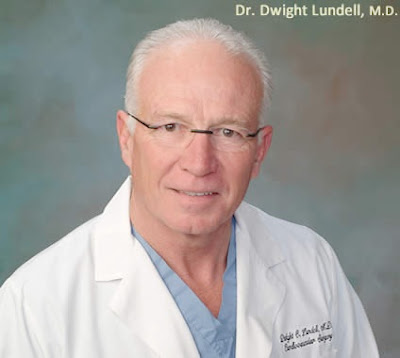Oral Health Can Provide Clues to Total Body Wellness for Patients
Cardiologists might not check your teeth and gums, but maybe they should start. Mounting evidence suggests a quick peek in the mouth may reveal a whole lot about your general health.
The lips, mouth, teeth and breath can signal medical problems and diseases beyond the plaque, gum disease and gingivitis diagnosed in the dentist's chair. Plaque buildup between teeth due to lax brushing and flossing is very different from plaque that builds up in arteries and causes heart attacks - but the toxins in mouth plaque stimulate a chronic inflammatory response linked to diseases like heart disease.
"The mouth is the gateway to the heart and there's clearly a link between poor dental health and cardiovascular conditions," says Dr. Kevin Marzo, Chief of Cardiology at Winthrop University Hospital in Mineola, New York. For example, he says, cardiac medications you put under your tongue travel quickly through the bloodstream. That means bacteria can too.
"The bacteria that cause dental plaque may promote inflammation in the body beyond the mouth including the lining of the blood vessels, increasing the risk for cardiovascular disease including heart attacks," says Marzo.
Research has shown when people with active gum disease are treated, their arteries actually get healthier. Some experts suggest managing inflammation in the mouth may reduce other inflammatory-related health issues, including arthritis - even wrinkles and aging. Besides heart disease, gum disease has been linked to respiratory diseases, stroke, and osteoporosis.
The mouth can also give doctors clues about a person's sexual health. Warts in the mouth that resemble cauliflower clusters may signal the human papillomavirus, or HPV, one of the most common sexually transmitted infections.
"I see them on the lips, tongue or roof of the mouth," says Dr. Susan Pugliese, Clinical Assistant Professor Division of Oral Medicine and Dentistry Department of Surgery at SUNY Downstate. "And I'm seeing them more frequently in patients over 50 who are dating." Pugliese says this age group may not connect what's going on in their mouth to their sex lives.
HPV is also a driver of oral cancer: the National Cancer Institute, estimates 65 percent of the approximately 8,000 cancers of the tonsils and base of the tongue seen in the U.S. in 2010 were from HPV infections; 80 per cent were in men. Cancers may appear as ulcers on the lips, inside of the cheeks, tongue or back of throat that don't heal, or white patches that don't slough off. A biopsy is typically recommended for suspicious warts or lesions in the mouth and throat.
HIV is often first detected in the mouth, as a bright red outline around the teeth, or as a white coating that can be scraped off the tongue, known as thrush. The coating signals an overgrowth of Candida, the same fungus that causes yeast infections in women and jock itch in men. The white coating can also signal glucose levels are out of whack, poorly managed diabetes or fluctuating hormones. It can also be harmless, signaling a sensitivity to additives in toothpaste, such as tartar control agents. Dentists may recommend an HIV test for young patients presenting with Candida who have other risk factors.
A person's breath also provides health clues. Bad breath may signal serious conditions that require medical attention such as respiratory infections, diabetes, acid reflux and kidney and liver problems. Dry mouth? That's sometimes caused by medications, such as antidepressants, anti-inflammatories, and heart drugs. Drinking water or chewing on fibrous foods such as celery may help.
Good oral hygiene is the best way to prevent gum disease and keep your mouth healthy. Healthy gums hug the teeth and don't pull away, have bounce, and don't bleed from brushing or flossing.
But while a clean, well-cared for mouth can promote good health, it can also disguise serious health problems... so don't skip regular visits to the doctor, and dentist.


